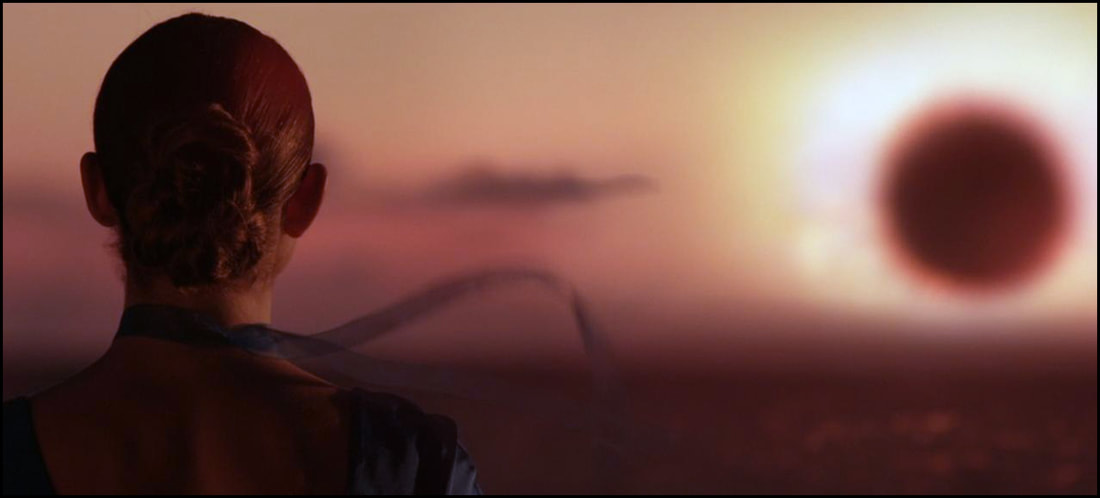Pictures like 2004’s Eternal Sunshine Of The Spotless Mind kinda/sorta tinkered with memory and memory loss, but I was largely turned off by its endless character quirks and curiously unaligned narrative focus. 1990’s Total Recall with Arnold Schwarzenegger took the idea of implanting memories and stuck it in a big budget picture that probably worked best though it really glossed over the more cerebral elements in favor of box office success. Heading back into the 80’s, there were some features a bit more commercial in value – 1983’s Brainstorm and 1984’s Dreamscape – but they, too, were somewhat forgettable in that they tried to capitalize more on the exploitative perspective to all of it.
For my tastes, Vanishing Waves (2012) resembles in many ways 2013’s Upstream Color, though it comes at similar subject matter from an entirely different point-of-view: here, the tale injects our narrator into another person’s head, putting him up close and personal in a way that inevitably threatens both of their sanities.
(NOTE: The following review will contain minor spoilers necessary solely for the discussion of plot and character. If you’re the kind of reader who prefers a review entirely spoiler-free, then I’d encourage you to skip down to the last three paragraphs for my final assessment. If, however, you’re accepting of a few modest hints at ‘things to come,’ then read on …)
From the film’s IMDB.com page citation:
“A neuron-transfer scientist experiments with the thoughts of a comatose young woman.”
Well …
The premise behind Vanishing Waves is a bit more complicated than IMDB.com would have you believe.
Lukas (played by Marius Jampolskis) is a neuroscience researcher who agrees to have his mind linked to that of a comatose auto-accident survivor named Aurora (a weirdly incandescent Jurga Jutaite). At first, their psychic meetings involve little more than an exchange of curious sights and sounds, but, eventually, Lukas finds himself drawn into her world not as an observer but as a direct participant in the happenings of her mind. As he’s pulled closer and closer, their encounters slowly evolve from primal, sexual experiences into a full-blown discussion of sensual delights (pleasure, then pain, then memories). It isn’t long before Lukas finds himself compelled – in the outside material world – toward seeking out and attempting to care for (in subtle ways) Aurora’s comatose body.
Vanishing Waves is a smart experience for the audience, and, as such, it’s none to be taken lightly. It’s a slow and measured presentation that requires patience on the part of the viewers because answers aren’t readily available. Lukas’s revelations take time to grow from the simplistic to those with greater complications and awareness. The initial mystery he’s presented, of course, is trying to understand the female mind he’s trapped inside; and there’s some clever photography and cinematography that hints at how this is accomplished in his role as psychic observer. It’s when he’s asked by Aurora to begin administering pain and suffering that he fully comprehends just how far over the threshold he’s crossed. This posts his most fundamental dilemma: does he ever really want to ever go back?
Writer/director Kristina Buozyte stages these character discoveries in sequences some might be quick to dismiss as little more than ‘artistic expression,’ but, once it’s clear how strongly her characters are linked, the stakes are raised. Then, Waves becomes a vastly more successful storytelling vehicle. Naturally, this storytelling process takes time, and Buozyte goes to great lengths to establish that both Lukas and Aurora are finding exactly what they want in life in their disturbing ‘unreality’ – he finds he can fulfill real human needs while she gets to experience unbridled desire once more. Sadly, the conclusion ends up being entirely predictable … but, boy, it’s quite the journey before the destination lets us down.
Vanishing Waves (2012) is produced by Acajou Films and Tremora. DVD distribution (stateside) is being handled through Artsploitation Films. For those needing it spelled out perfectly, this is a Lithuanian-spoken release with English subtitles, and there are some sequences of the film spoken entirely in English (which makes for some curious sequences of subtitles popping in and out distractingly). As for the technical specifications, wow! The film’s sound and visuals are increasingly used to enhance the sensual experience that so much of WAVES relies on in its first half; it diminishes in the latter, but there are cue sequences (clues) sprinkled throughout. As for the special features, Artsploitation has done an exceptional job with this release: it’s a two-disc production including director Kristina Buozyte’s first feature film (THE COLLECTRESS), a Cineurope interview with her, the original motion picture soundtrack, and a ‘making of’ short. Additionally, the packaging includes an impressive 12-page collector’s booklet featuring a ‘conversation’ with Buozyte and a brief interview exchange with Ms. Jutaite. Nice digs, if you can get ‘em.
A slow burn, for sure, but Highly Recommended.
In some odd ways, I’m reminded of Upstream Color (a superior work from earlier the same year) and even some cerebral sci-fi of the late 1960’s and early 70’s. The chief complaint I’d have critically with Vanishing Waves is that it embraces an almost passionless narrative for far too much of the film, embracing its hard science angle almost until the final third of the picture. Presenting so many images with emotional detachment puts the viewer in the role of deciphering far too much of the story, though it’s possible if you’re watching really, really, really closely to make a best educated guess as what the meaning of the pre-credits sequence truly is (and you’d probably be right). Once it becomes clearer, then all of the players deliver an all-too-predictable and all-too-convenient denouement for those earlier forty minutes that so deeply invested in transcending borders. Still, it’s a smart SciFi flick – one that’ll probably inspire others to try more of the same – and, for that, I’m very thankful.
In the interests of fairness, I’m pleased to disclose that the fine folks at Artsploitation Films provided me with a DVD copy of Vanishing Waves by request for the expressed purposes of completing this review. Their contribution to me in no way, shape, or form influenced my opinion of it.
-- EZ



 RSS Feed
RSS Feed